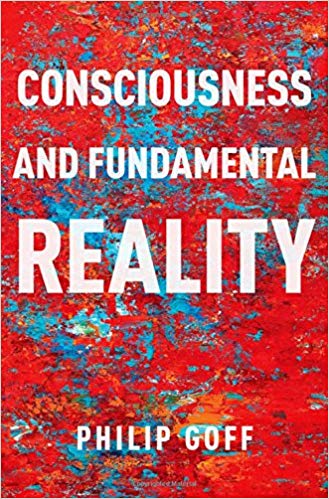A feminism of coercion would force men and women into roles they did not choose, and worse still, it would create a world based on lies.
Oh, and About Modern Science’s Disenchantment of the World—Not So Fast
The ancient and medieval worlds were full of demons and gods; our modern world, less so. Let’s clarify: about 85 percent of the world’s population believes in God or gods but Western civilization does not follow suit. Speaking in overall terms, that is. Even in the West, vast numbers of people are religious, but our universities and other institutions of the “commanding heights” live in a disenchanted world free of demons and gods.
To be sure, it’s hard to miss that in J.R.R. Tolkien, as in Harry Potter, and Game of Thrones, spells and enchantments prevail. Likewise opera and ballet are replete with fairy stories. But philosophical reason has firmly locked up Ents and Whomping Willows in the category of fantasy. Hard reality is not providential, mystical, or whimsical, thinks the modern philosopher.
René Descartes (1596-1650) famously divides reality into res cogitans and res extensa. There are thinking things, res cogitans like you and me, and then all the rest—including your dogs and cats—is merely matter in motion (res extensa). And during several centuries of going down the road of Cartesianism, our universities and cultural publications have collapsed the distinction: you and I are just like Descartes’ cats and dogs, matter in motion, through and through. That some bits of matter think and have emotions is of course astonishing and perplexing, but we are not to think ourselves metaphysically special even so.
This conviction that consciousness ultimately reduces to matter is known as physicalism. Why has physicalism carried the day amongst the cognoscenti? After all, Plato thought that all reality was shot through with eros, St. Thomas Aquinas thought matter was desire, and late into the 19th century, Schopenhauer and Nietzsche argued that fundamental reality is surging will.
Whilst some philosophers thrill to the loss of enchantment as a maturation beyond childishness, other philosophers express regret, and even horror, at the thought. One of the greatest of all intellectuals, the polymath Gottfried Wilhelm Leibniz, is firmly in the second camp.
Fascinated by machines and computational logic, and one of the inventors of calculus, Leibniz (1646-1716) was nonetheless a panpsychist: an advocate of the position that every piece of matter is consciousness. The ultimate constituents of reality are what he called monads and each is alive, having perceptions to highly varying degrees.
The Leibnizian vision is an arresting one. As he wrote in The Monadology (1720):
Every portion of matter may be conceived as like a garden full of plants and like a pond full of fish. But every branch of a plant, every member of an animal, and every drop of the fluids within it, is also such a garden or such a pond . . . There is, therefore, nothing uncultivated, or sterile or dead in the universe.[1]
How nice it is that Oxford University Press has published a philosopher vigorously defending panpsychism, and even something called cosmopsychism. Philip Goff’s Consciousness and Fundamental Reality (2017) is audacious. The associate professor of philosophy at the Central European University in Budapest argues that answers to questions about fundamental reality will be found in metaphysical reflection, not science. His writing, based on a deep knowledge of contemporary science, is crisp and concise. (Given, however, that academic philosophy books are not for everyone, it is fortunate that readers can also turn to distillations of his argument for panpsychism here and cosmopsychism here.) Goff’s recent work is sponsored by the Templeton Foundation.
He observes that the scientific method does not pretend to tell us about the essence of reality but offers merely to measure and predict its behavior. Most scientists are physicalists, but Goff reminds us, and them, that this is not itself a scientific theory, but a philosophical attitude (as is confirmed by the observations of Britain’s leading astrophysicist). Indeed, physicalism is bad philosophy, he adds, for it flies in the face of the most obvious evidence we have about reality.
There is one thing we know for certain about a part of reality (a certainty bequeathed by Descartes, no less): We know we are conscious. We know that the stuff in our brains experiences. Are we not, asks Goff, compelled by scientific elegance to then think all physical things experience? If we deny this, insisting there are two different kinds of stuff—stuff like us and other stuff that is not conscious—we add a level of complication and mystery, which scientific elegance suggests we ought to do without.
Writes Goff:
Consciousness is not a ‘mystery’; nothing is more familiar. What is mysterious is reality, and our knowledge of consciousness is one of the best clues we have to working out what that mysterious thing is really like.
The author says he is not a theist. Like Albert Camus, he thinks the problem of evil intractable. Goff is a monist. There is one kind of stuff, and it is physical, but it is also mental. Championed by Leibniz, panpsychism is the most elegant account we have of reality and thus the most probable.
Goff combines panpsychism with a metaphysics of holism to generate cosmopsychism. Holism is the claim that instead of thinking of things as built up from aggregates of simpler building blocks—a position he dubs smallism—we ought to acknowledge that wholes actually precede parts, and that they explain the existence of parts.
On this view, atoms in a table exist because the table exists. Evidence for this proposition stems from the phenomenon of quantum entanglement: the curious fact that entangled particles act as a unit despite being so distant from one another that response to signals between the parts is impossible. It is perhaps worth remembering in this connection that Adam Smith’s “invisible hand” is a complex symmetry that precedes and shapes individual actions and arranges them into a pattern of distribution.
The next stage of the argument amplifies enchantment significantly. It is the proposition that the universe is a conscious whole and it is moral. Every whole exists because there exists the most complex of all wholes, the universe. Goff’s monism entails that what is physical is also mental, and so the whole universe is both mental and physical. The second of his Aeon articles that are cited above adds a significant twist: “The cosmopsychist can propose that during this early stage of cosmological history, the Universe itself ‘chose’ the fine-tuned values in order to make possible a universe of value.” Goff is referencing the astonishingly fine margins in fundamental physical laws that facilitate a world like ours.
There are a bunch of these fine-margin facts. He explains one:
The strong nuclear force (the force that binds together the elements in the nucleus of an atom) has a value of 0.007. If that value had been 0.006 or less, the Universe would have contained nothing but hydrogen. If it had been 0.008 or higher, the hydrogen would have fused to make heavier elements. In either case, any kind of chemical complexity would have been physically impossible. And without chemical complexity there can be no life.
Goff’s most fascinating claim is that the universe selected these physical values because it made a moral selection: Better to have a cosmos with life, and intelligent life, than dull sterility. The conscious universe exercised liberty in deferring to value.
His cosmopsychism does not place humans at the center of the story of reality—it is not a Christian metaphysics—but it does reenchant the world. We are matter through and through but also conscious through and through, just like every other bit of matter in the universe. Despite himself, Goff is moving closer to a theistic metaphysics, though obviously the orthodox Christian belief in God as a spirit of love is not countenanced.
Ents might not stroll through our forests observing wood sprites on this account, but it does seem that academic philosophy is not only returning to offering “big picture” cosmological reasoning, but starting to cast doubt on the idea that the universe is “uncultivated, or sterile or dead” in favor of a cosmos replete with consciousness, liberty, and values.
[1] See Gottfried Wilhelm Leibniz, paragraphs 67 and 69 of The Monadology, in Discourse on Metaphysics (Open Court, 1950).


